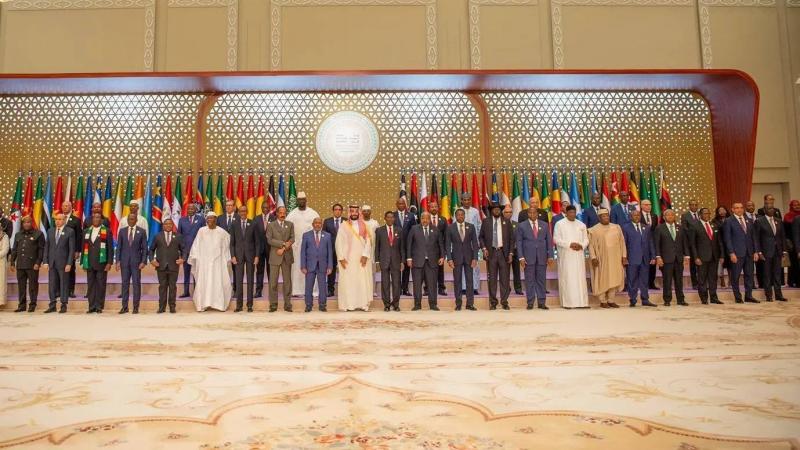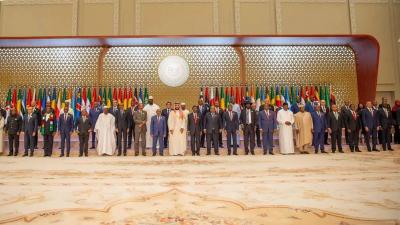An extraordinary Arab-Islamic summit commenced today, Saturday, in the Saudi capital, Riyadh. In his opening remarks, Saudi Crown Prince Mohammed bin Salman stated that “the situation in Gaza requires collective effort and effective action to end the unfortunate circumstances,” calling for an immediate cessation of military operations and humanitarian corridors to Gaza. He condemned the brutal war facing the Palestinian people in Gaza, emphasizing that Riyadh has made efforts to protect civilians and halt the conflict.
Ahmed Aboul Gheit, the Secretary-General of the Arab League, remarked that “the aggression against Gaza is not the first of its kind, but we hope it will be the last,” highlighting the brutal and genocidal approach against civilians while the international community fails to contain the situation. He asserted that a complete ceasefire should be the priority above all else and that eviction calls constitute an international crime under international law.
Philippe Lazzarini, the UNRWA Commissioner-General, delivered a speech emphasizing that “Israeli forces have pushed many people into the streets of Gaza, where more than 70,000 women and children reside in UNRWA buildings.” He pointed out the shocking living conditions in Gaza, mentioning a shortage of food, medicine, and fuel.
Palestinian President Mahmoud Abbas stated, “Our Palestinian people are facing a war of extermination at the hands of the cowardly Israeli war machine, which defies all international laws,” holding the occupying authorities responsible for the destruction in Gaza. He emphasized that the United States bears full responsibility for the lack of a political solution.
Jordanian King Abdullah II condemned the “barbaric” war waged by Israel on Gaza, stating that it must stop and highlighting the ongoing killing of medical personnel, aid teams, children, women, and the elderly. Egyptian President Abdel Fattah el-Sisi echoed similar sentiments, urging the international community to take decisive action to address the humanitarian crisis and warning against the possibility of the war spreading in the region.
Turkish President Recep Tayyip Erdoğan called for collaboration with Egypt to deliver assistance to Gaza, condemning the Israeli attacks which have targeted hospitals, mosques, schools, and ambulances. He insisted that crimes against civilians should be referred to international courts, while also questioning the presence of nuclear weapons in Israel.
Qatar's Emir Sheikh Tamim bin Hamad Al Thani demanded de-escalation, protection of lives, release of hostages, and establishment of humanitarian truces, voicing disappointment at the international community's failure to halt the massacres in Gaza. Iranian President Ebrahim Raisi stressed the need to lift the blockade on Gaza and secure the safety of Palestinians in occupied territories, claiming that America plays a central role in the aggression against Gaza.
Kuwaiti Crown Prince Sheikh Mishal Al-Ahmad called on the international community to take action regarding the situation in Gaza, stating that the priority is to reach a just resolution to the Palestinian issue based on international resolutions.
Syrian President Bashar al-Assad remarked on the increased aggression following failed peace efforts and emphasized that the crime must not be treated in isolation from how Arab states respond to events in the Palestinian cause.
Iraqi President Abdul Latif Rashid condemned collective punishment policies towards Palestinians, and Libyan Presidential Council leader Mohamed Al-Menfi emphasized that the international community's credibility is at stake due to ongoing aggression against the Palestinian people.
Yemeni Presidential Council leader Rashad Al-Alimi affirmed support for the Palestinian people's right to self-determination and stressed the necessity of uniting in support of their cause.
The extraordinary joint Arab-Islamic summit in Riyadh aims to enhance consultation and coordination regarding the Israeli military escalation in Gaza and other Palestinian territories, and to discuss collective Arab and Islamic responses to the crisis.




